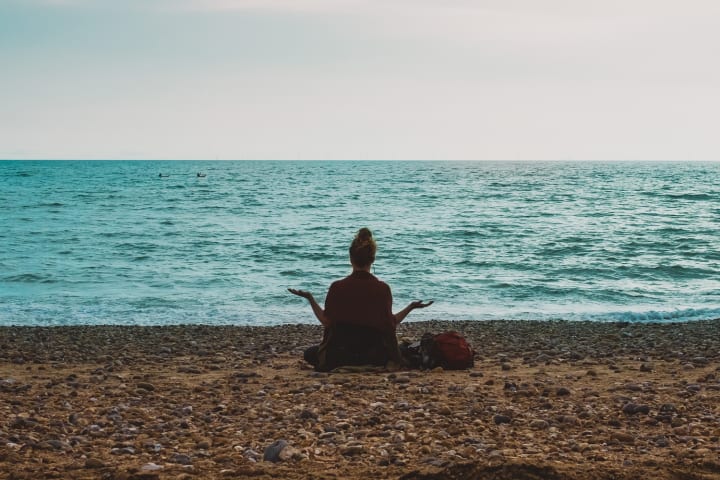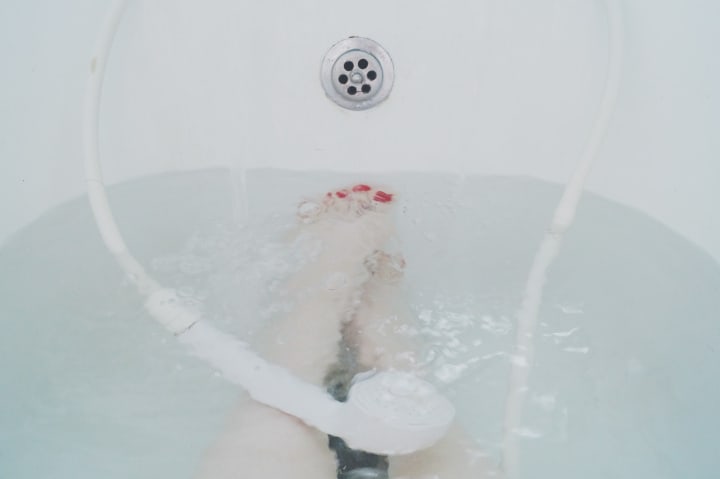Ultimate Guide to Reducing Stress
You need a guide to reducing stress—a relaxing blueprint to follow anytime your anxieties and responsibilities threaten to overwhelm you.

Every person can benefit from a handy guide to reducing stress. Stress doesn't pass anyone by. The aspects of your life that cause stress or tension are unique to your circumstances. Perhaps parts of your anxiety comes from your job, your class schedule, your family, or money issues, or a combination of all of these factors. There are hundreds of reasons to experience tension. Fortunately, there are nearly as many ways to erase it, or at least soothe it. Doing so takes commitment, a commitment to yourself and your mental health. Remember, you can't take care of other people unless you take care of yourself.
Recognize your triggers before creating a guide to reducing stress.

Image via Unsplash
Any number of things can trigger a response to stress. Sometimes the catalysts are unpredictable, but for the most part, individuals have the same worries. To craft a guide to reducing stress that eases your specific burdens, ask yourself what causes you to agonize. When do you feel the most restless? Pinpointing your anxieties helps you to further recognize the patterns that lead to stress attacks and bouts of anxieties. That gives you the opportunity to sense when they're coming, and perhaps stop them in their tracks. Everybody has stress. It's a constant. That doesn't mean you can't work through it and subdue its effects.
Focus on your feelings.

Image via Unsplash
Different feelings and emotions can cause anxiety attacks and tension, as well. You might handle stress beautifully 90 percent of the time, but feeling hangry, tired, or under the weather might cause you to snap. You may not be able to avoid those situations entirely, but you can try to prevent them.
Begin the day with a meditation session.

Image via Unsplash
Regardless of your triggers and the emotions you display when you're stressed out, you can begin your guide to reducing stress with a wake-up session of meditation. Even before you drink your morning cup of coffee or tea, splash some cool water on your face and tuck yourself into a quiet place. Follow any technique that brings you peace. There are “proper” ways to meditate, but as long as you can clear your mind and center yourself, you are on your way to reducing your stress.
Lighting candles or incense is a common practice. Opt for scents that you genuinely enjoy, and stay away from any fragrances that are too cloying or heavy. Soft, subtle aromas or fresh scents are best. You can also meditate outdoors, or in a place where you're surrounded by flowers and greenery, such as a park or greenhouse.
Playing music may transport you to your happy place. Listen to whatever you like—within reason. You're not limited to Enya or pan flutes, but avoid songs that are too aggressive or loud. Don't listen to the music you use to gas up before a night out, for example, or the playlist that gets you pumped at the gym.
Soothe the savage beast.

Image via Unsplash
Music is a panacea, so you don't have to limit your listening time to the moments you spend discovering your inner balance. It's best to listen to peaceful sounds during those moments, but as a general stress reliever, feel free listen to anything that relieves, and releases, the tension in your body. That might be rap, hip-hop, heavy metal, or Dave Matthews. Play it as loud as you want, particularly if you're home alone.
Breathe with mindfulness.

Image via Unsplash
Practicing a form of mindful meditation might be a smoother option to start with on your journey to soothe the savage beast. In this case, deep, mindful breathes will guide you to inner peace. It belongs on a guide to reducing stress for anyone who has trouble focusing, as there are several ways to note how mindfulness has improved the treatment of mental illness. It erases the guilt that you probably feel anytime your mind wanders. Instead of clearing your mind, you breathe with mindfulness. There's just the inhale and the exhale.
Mindfulness practices make allowances for imperfections. Some people simply cannot clear their minds completely. Most of us find it difficult, in fact. Short mindfulness is a meditation practice that understands how thoughts ramble and wander. It's okay for your mind to be active, and it doesn't mean you have to start over. Take a deep breath each time your mind veers away from you. Breathing is the key to calming yourself in almost any situation.
Take notice of the moment.

Image via Unsplash
You need to be present in your own life. Put down your phone and shut your laptop. Stay away from social media for a while—scrolling through Facebook or Twitter is often more stressful than it's worth. Stop documenting each moment and actually live it. Breathe in the scent of the air. Take in what's around you. Feel precisely where your feet meet the ground. It only takes up a few moments within your guide to reducing stress, but the act can keep you calm for hours afterward.
Connect with your real network.

Image via Unsplash
Seriously, forget about your social network and reach out to your real-world network of friends and family. Online pals are valuable, but the number of ways that social media can destroy our self-esteem is seemingly endless. Nothing beats a face-to-face or heart-to-heart interaction with someone in person. Talk about how you're feeling, but don't neglect to ask, as well. Welcome a friend's perspective, but always give them attention and understanding in return. That's what a good friend does, plus it takes you out of your head.
Make time for self-care.

Image via Unsplash
Self-care takes on many forms, but no matter how you do it, it deserves a top spot on the guide to reducing stress that you implement in your life. You may choose to read a book, take a hot bath, or go on a walk. Also consider booking a massage, giving yourself a facial steam, or using a personal massage roller or tennis ball to roll away the tension in your neck and shoulders. A self-care guide should be the foundation of your journey to inner peace.
Get your endorphins flowing.

Image via Unsplash
Exercise is an excellent stress reducer. Your fitness level doesn't matter; any kind of activity is ideal as long as it leaves your heart pumping. Take a bike ride around the neighborhood. Spend an hour at the gym. Go for a run in the park. Even a walk with your lover after dinner is good for your mental and physical health.
Cut out the toxicity.

Image via Unsplash
Reducing stress is impossible if there's negativity in your life. Cut out toxic people and circumstances. Surround yourself with positivity and your life will reflect that. Doing so also makes it easy to practice gratitude for your blessings.
What activities do you recommend for a comprehensive guide to reducing stress? Share your techniques for staying calm.
About the Creator
Rowan Marley
Rowan Marley is a 20-year-old sports enthusiast who hails from Brooklyn. When he's not hitting up a local Zumba class, he's drinking organic smoothies. That's just how he rolls.






Comments
There are no comments for this story
Be the first to respond and start the conversation.